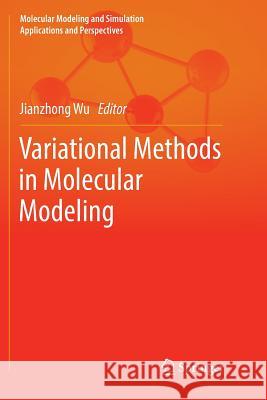Variational Methods in Molecular Modeling » książka
topmenu
Variational Methods in Molecular Modeling
ISBN-13: 9789811096327 / Angielski / Miękka / 2018 / 324 str.
Kategorie:
Kategorie BISAC:
Wydawca:
Springer
Seria wydawnicza:
Język:
Angielski
ISBN-13:
9789811096327
Rok wydania:
2018
Wydanie:
Softcover Repri
Ilość stron:
324
Waga:
0.47 kg
Wymiary:
23.39 x 15.6 x 1.78
Oprawa:
Miękka
Wolumenów:
01











